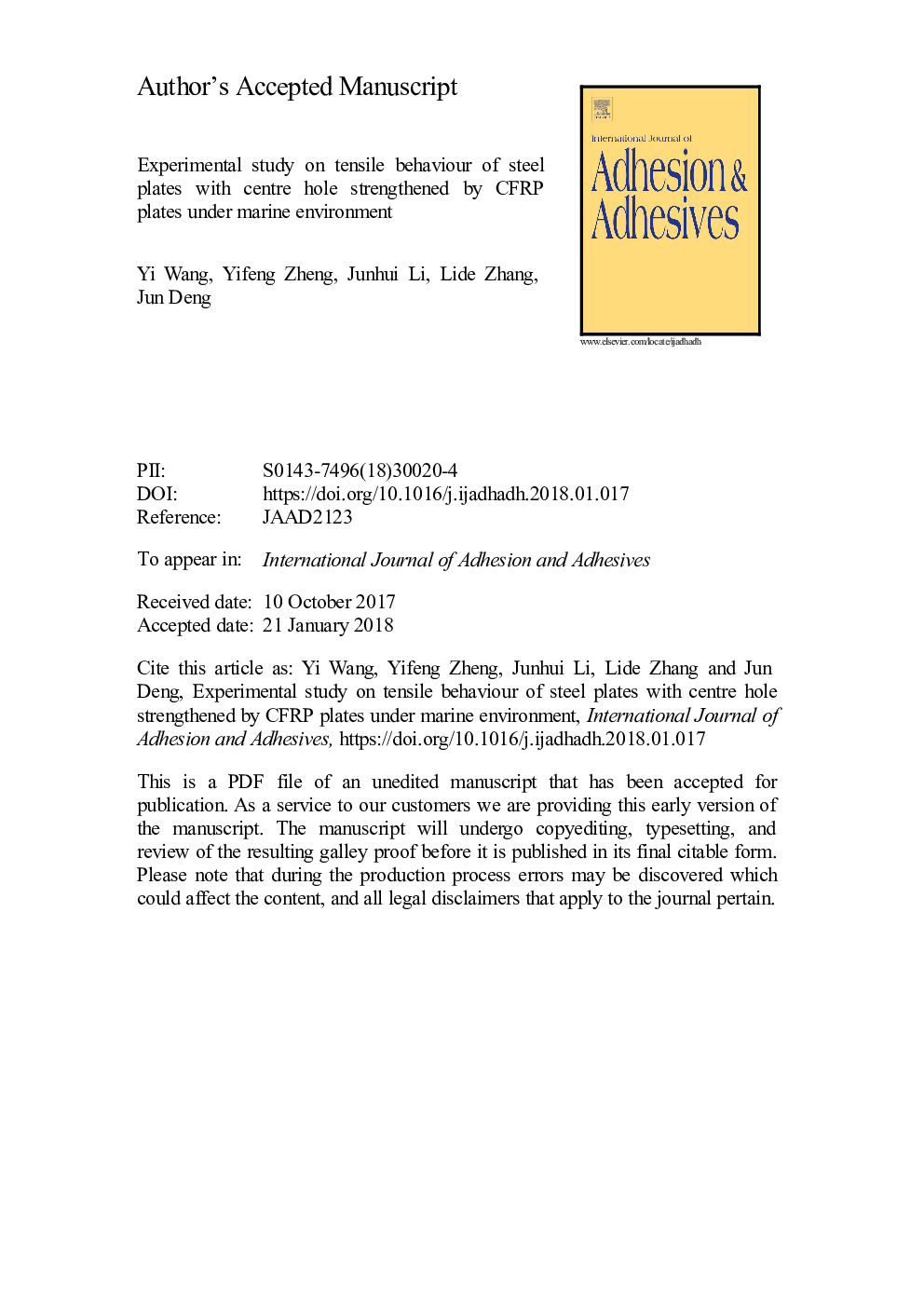| Article ID | Journal | Published Year | Pages | File Type |
|---|---|---|---|---|
| 7170881 | International Journal of Adhesion and Adhesives | 2018 | 16 Pages |
Abstract
Carbon fibre reinforced polymer (CFRP) is effective in strengthening steel structures with defects. However, when the composite structures are exposed to marine environment, their mechanical properties can be degraded to a degree that has not been thoroughly elucidated to date. In this paper, tensile behaviour of steel plates with a centre hole strengthened by CFRP plates under marine environment were experimentally studied. The marine environment was simulated by wetting/drying cycles (WDCs) with 3.5%wt sodium chloride solution. Different patch configurations and adhesive types were considered. After the environmental exposure, tensile tests were conducted. From the test results, load-displacement curves, load-strain curves, yield load, ultimate load and failure displacement change with 0, 90 and 180 WDCs were obtained. Based on particle image velocimetry (PIV), the failure modes of specimens were also analysed. After CFRP strengthening, the cracking propagation of steel plates was impeded, and the bearing capacity and ductility were significantly improved. The mechanical degradation degree was more than 20% after 180 WDCs exposure, while the strengthening effect reduction was even worse, which shows poor bond durability. Deterioration of adhesive not only has a negative effect on the mechanical performance of composite specimens but because of the stiffness reduction of the adhesive layer, a beneficial effect was also observed in the first 90 WDCs. This phenomenon plays an essential role in bond durability of the strengthening system, which warrants further investigation.
Related Topics
Physical Sciences and Engineering
Engineering
Mechanical Engineering
Authors
Yi Wang, Yifeng Zheng, Junhui Li, Lide Zhang, Jun Deng,
